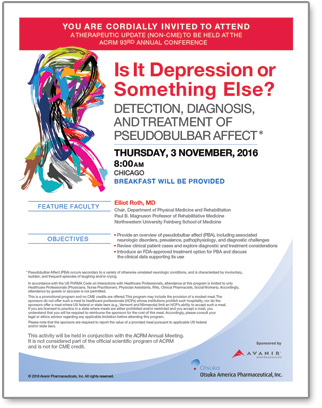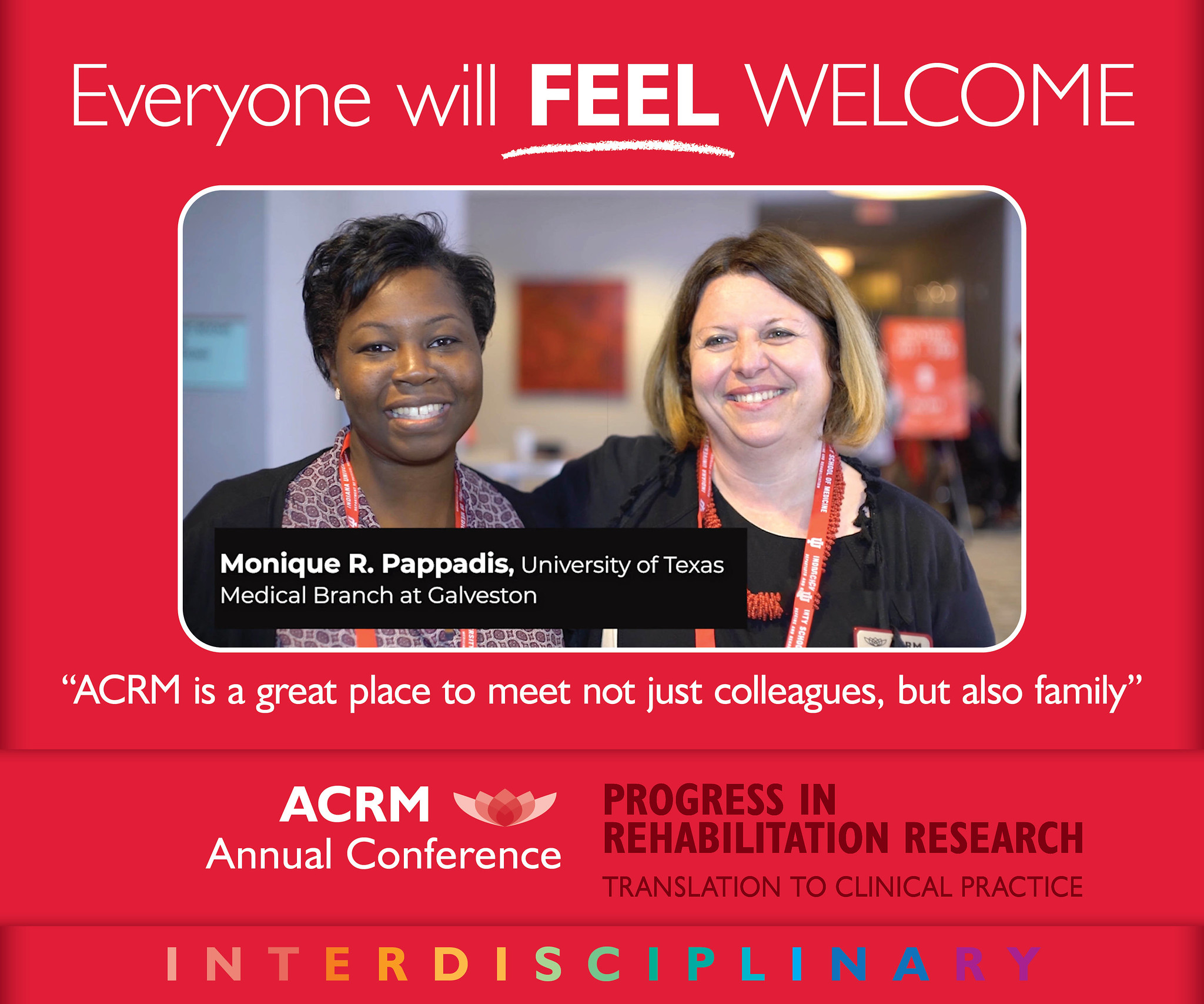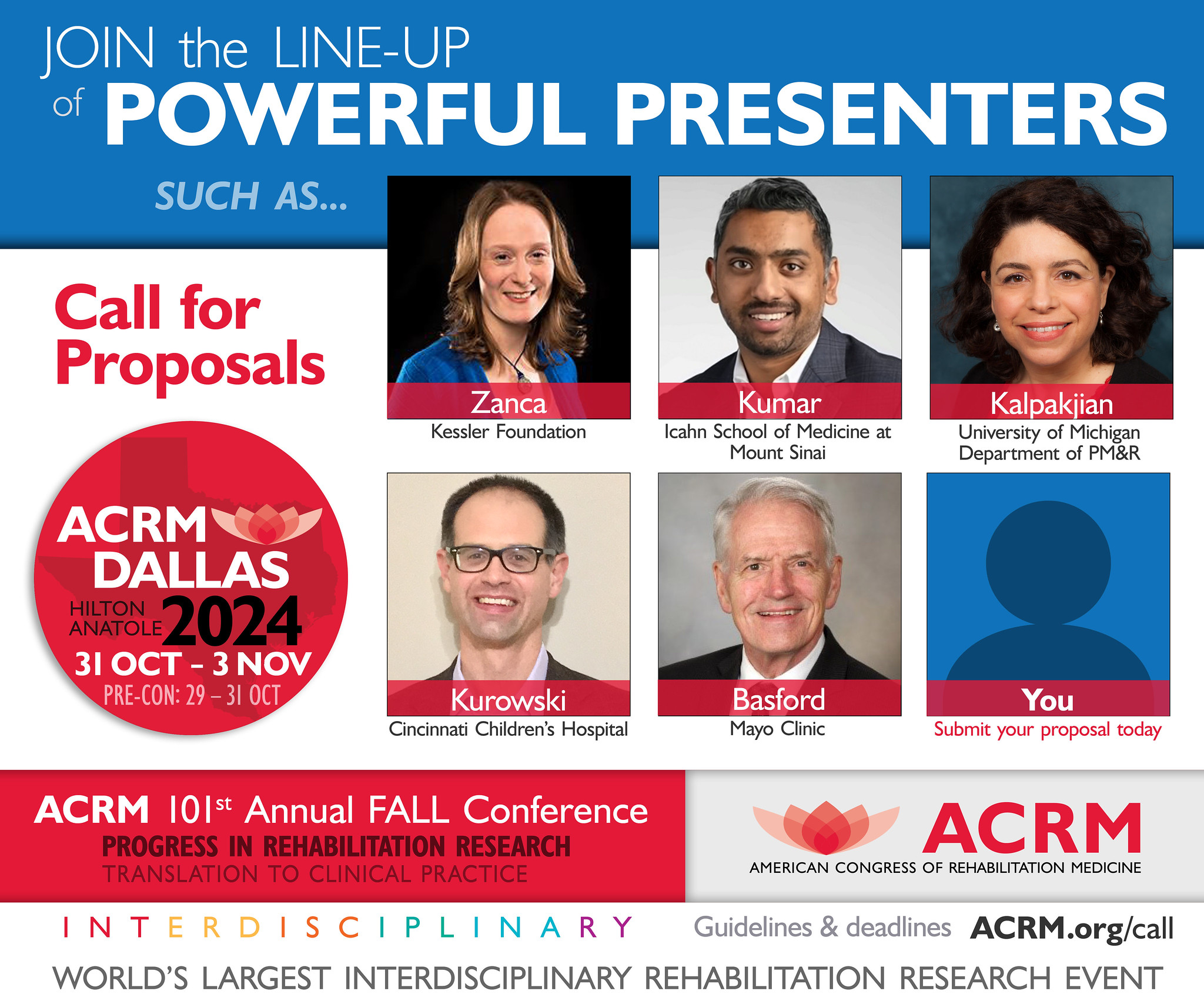
CLICK to Enlarge PBA Breakfast Lecture Flyer
Many patients we treat with multiple chronic conditions and severe disability exhibit symptoms including depression, stress, and the overall burden of coping with daily life. When treating these complex patients, it is sometimes challenging to pinpoint and treat some of the secondary symptoms they are experiencing. Specifically, patients with a diagnosis of certain neurologic disorders, such as traumatic brain injury (TBI), Alzheimer’s disease or other dementias, stroke or TIA’s, multiple sclerosis (MS), Parkinson’s disease, or amyotrophic lateral sclerosis (ALS), may exhibit uncontrollable episodes of laughing, crying, or both which are either exaggerated or contradictory to the context in which they occur.
These symptoms often look like depression or other psychiatric disorders, but may be a treatable condition called psuedobulbar affect or PBA. The clinical impact of PBA can be severe, with persistent symptoms which can be disabling to patients and may significantly impact quality of life for caregivers.
Many patients have never heard of PBA and have trouble describing the episodes to their health care provider. However, nearly two million Americans with underlying neurologic conditions or brain injuries are estimated to suffer from these uncontrollable outbursts of crying or laughing.
PBA is a neurologic condition in which people are prone to sudden, unexpected and often frequent episodes of crying or laughing. People with TBI, stroke, Parkinson’s disease, multiple sclerosis, amyotrophic lateral sclerosis, or various dementias are more likely to exhibit these symptoms. While the condition has been largely misunderstood and misattributed to psychiatric disorders, current research suggests that specific types of injuries and disease may interrupt brain functions which normally control emotions, which can lead to PBA.
PBA is disconcerting for those with the condition and those around them. People with PBA cannot understand why they are displaying emotions in contrast to their actual feelings and their family and caregivers are dismayed by apparent evidence of distress or callousness or by the intensity of the event.
If you have a patient exhibiting what you think may be PBA, please discuss their symptoms with the rest of your medical team. These symptoms may impact patient participation in group therapy activities vital to treatment and may not be displayed during the patient’s periodic physician-led medical exams.
For more information on PBA, please access www.pbafacts.com. To view the PBA film recently released, please go to www.pbafilm.com. Article references are available upon request; contact Cindy Robinson
Sponsored Breakfast Lecture on PBA
Want to learn more about PBA? Attendees of the 2016 ACRM Annual Conference who are healthcare providers treating individuals with neurologic conditions such as TBI, stroke, Parkinson’s disease, multiple sclerosis, amyotrophic lateral sclerosis, or various dementias are invited to attend a sponsored breakfast lecture.
Detection, Diagnosis and Treatment of Psuedobulbar Affect
FEATURED FACULTY

Elliot Roth, MD
Chair, Department of Physical Medicine and Rehabilitation
Paul B. Magnuson Professor of Rehabilitative Medicine
Northwestern University Feinberg School of Medicine
The breakfast lecture will be held on Thursday, 3 November at 8:00 AM at the conference headquarters hotel, the Hilton Chicago. Breakfast will be provided. Conference registrants who wish to participate may sign-up by emailing Sarah Barrah, ACRM Member Services Manager. Please don’t delay. Seating is limited. Visit ACRM.org/PBAbreakfast for full details.
BEST ACRM Conference Rates ONLY through 17 May >> Register NOW >>
Sponsored by Avanir Pharmaceuticals, Inc.









